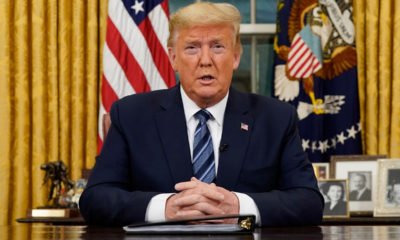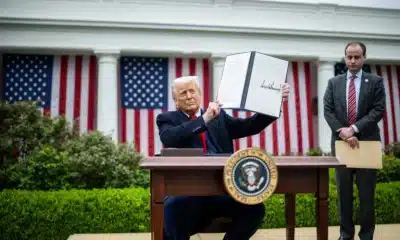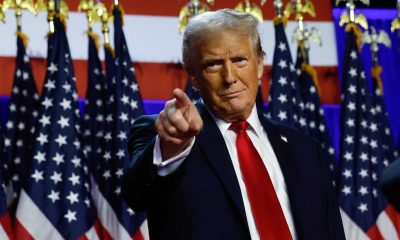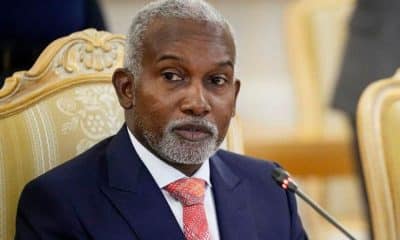Nigeria News
US President, Trump Imposes 14% Tariff On Nigerian Exports
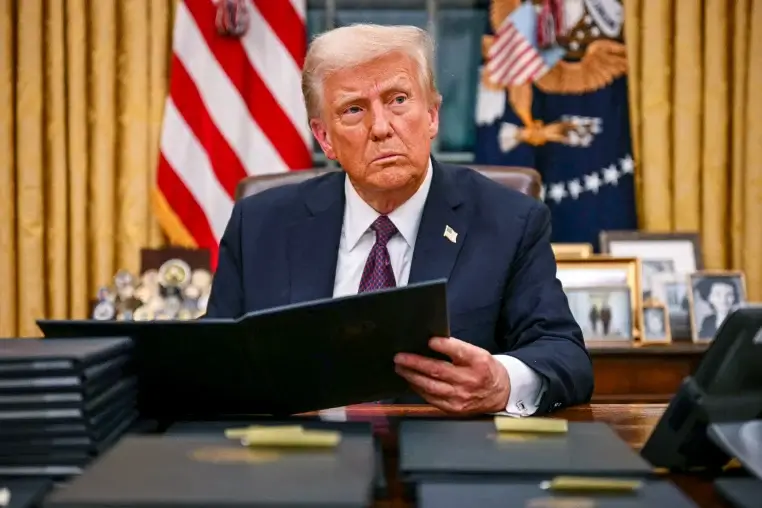
U.S. President Donald Trump has implemented new tariffs in a dramatic escalation of trade tensions worldwide, branding the day as “Liberation Day” in his address to the public on Wednesday.
The President outlined plans for the U.S. to implement “reciprocal tariffs” on all countries, which will be “approximately half” of the tariffs those countries charge on U.S. imports.
Among the countries affected by this new tariff regime is Nigeria, which will now face a 14% tariff on its exports to the U.S., in contrast to the 27% tariff that Nigeria has been charging U.S. goods.
In 2024, Nigeria exported goods worth N931 billion to the U.S., with crude oil being the largest export item. However, in the same period, Nigeria imported ₦1.05 trillion worth of goods from the U.S., making the tariffs a significant part of the trade relationship.
The new policy will impact Nigeria’s export industry, as the U.S. tariff plan sets the bar for trade conditions going forward.
Trump unveiled a chart illustrating the trade imbalances between the U.S. and other countries, highlighting that China charges a tariff of 67% on U.S. goods, while the U.S. will impose a 34% tariff on Chinese goods.
The President also listed several countries and their new tariff charges, including:
European Union: 20% tariff
Vietnam: 46% tariff
Taiwan: 32% tariff
Japan: 24% tariff
India: 26% tariff
South Korea: 25% tariff
Thailand: 36% tariff
Cambodia: 49% tariff
These new rates indicate a significant shift in global trade policies, with the U.S. looking to reassert its trade power and push for more favorable terms.
Trump concluded his announcement in the White House Rose Garden by signing two executive orders aimed at addressing what he described as unfair trade practices.
The first order addresses “the de minimus loophole” with China, a provision that had allowed the country to export goods to the U.S. at a lower cost, bypassing taxes and import duties.
The second executive order focuses on reciprocal tariffs, which include a 25% tariff on all imported cars and tariffs ranging from 10% to 49% on all goods imported from abroad. Trump emphasized that these tariffs would generate “$6 trillion in investments” for the U.S. economy.
While President Trump claims that the tariffs will boost investments, experts argue that the burden of tariffs is typically borne by American businesses and consumers, not foreign exporters.
This move is likely to result in what some are calling the largest “tax hike” in U.S. history, with potential repercussions for American consumers facing higher costs on imported goods.
The European Union, which will now face a 20% tariff on all exports to the U.S., has not yet formally responded to the new tariffs. European Commission President Ursula von der Leyen is expected to make a statement on the issue later today.

